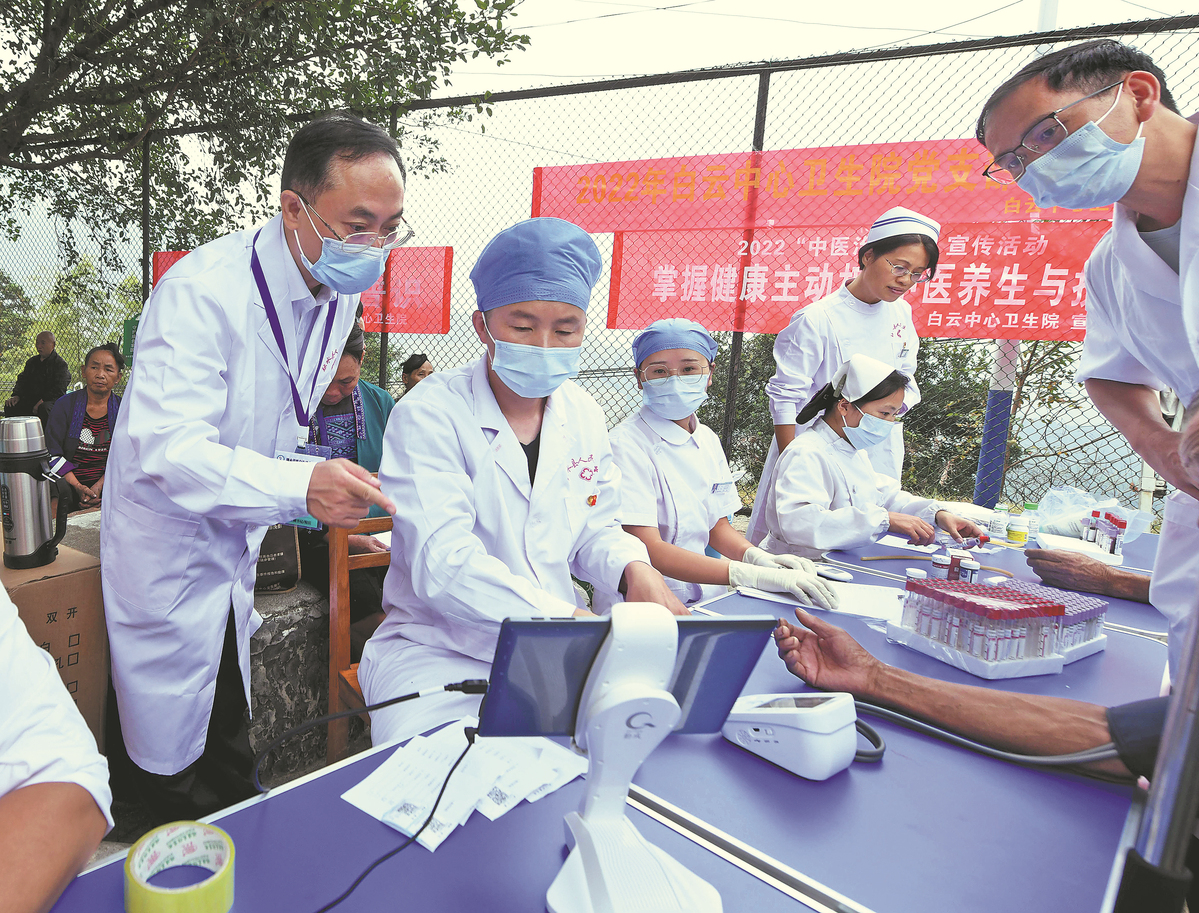Aging society poses problem for nation's older doctors
Release time: Jun 5,2023
Reading volume: 335

Zhou Zhongyou (left), a doctor from the Affiliated Hospital of Guangdong Medical University in Guangdong province, works with local medical professionals during a free clinic in Rongshui Miao autonomous county, Guangxi Zhuang autonomous region, on Oct 26. HUANG XIAOBANG/XINHUA
Senior medics are concerned that China's health service may experience a shortage of qualified replacements when they step down. Li Lei reports.
Cao Huiling, 50, looked around her workplace and came to an unwelcome conclusion: Her employer, a county-level hospital in Xingping, Shaanxi province, was sliding into a demographic crisis.
Almost all of her 60-plus colleagues were age 45 or older, and many were approaching the legal retirement age, which is 55 for women and 60 for men.
"In just a few years, we will be running out of working-age doctors," said Cao, the only ear, nose and throat specialist at the hospital, a grade 2 facility under China's three-tier rating system.
One-doctor departments are prevalent in smaller county hospitals, which not only serve local residents but also those from nearby villages, she said. Only a few traditionally important departments such as obstetrics and emergency medicine have more staff members.
Long before the aging crisis was imminent, the hospital's human resources office had urged Cao and the doctors in charge of other departments to interview potential recruits and foster their "successors".
However, there were few applicants. In a major compromise, the office had in recent years dropped the applicant threshold of a five-year college degree in medicine and settled for the bare minimum for the highly trained profession. Now, applicants must have completed three years of medical training at a junior college.
Still, only a small number showed up for interviews. For the few medical graduates who opt to work there, the hospital — overshadowed by larger facilities in Xianyang and Xi'an, the provincial capital — only serves as a launch pad for their careers.
New recruits usually accept a starting salary of about 3,000 yuan ($425) a month for a couple of years, during which time they study part time and try to land jobs elsewhere.

